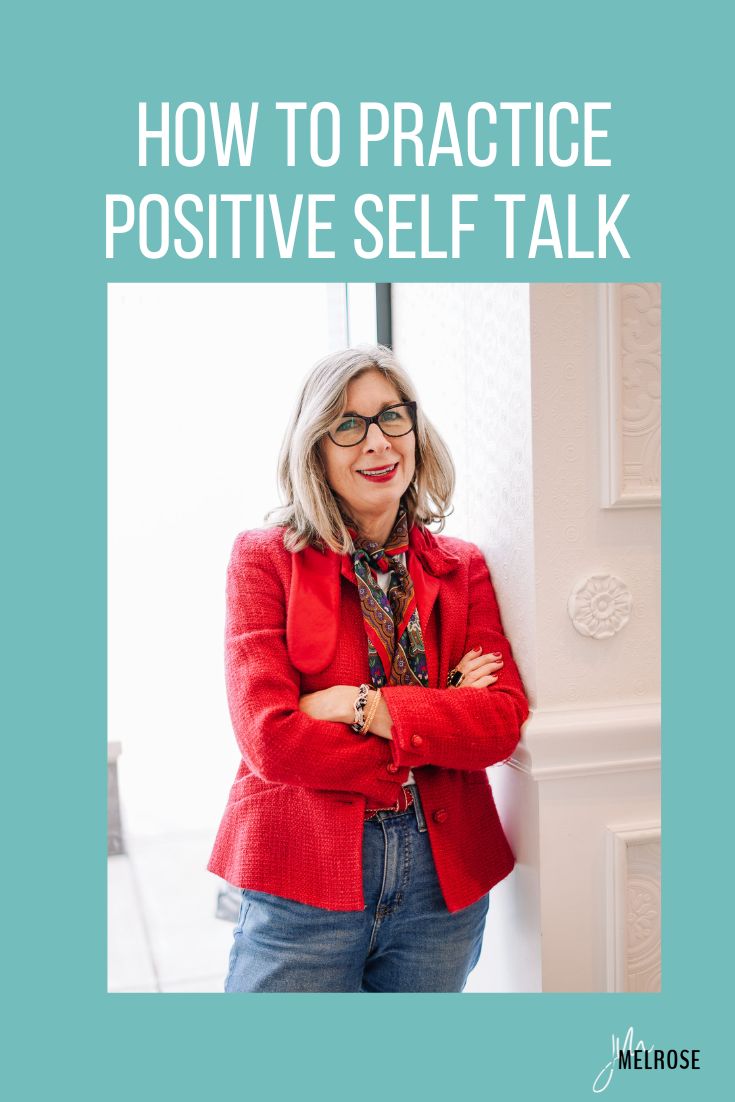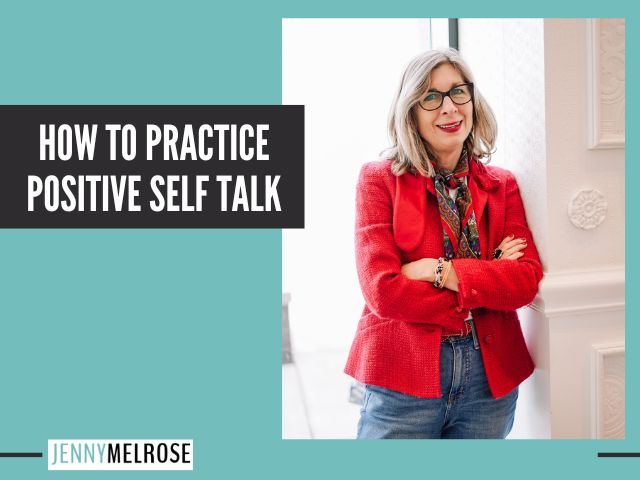Positive self-talk is how you talk about yourself and the conversations and feelings that you tell yourself. Learn more about how to practice positive self-talk to see more positive results in your business.
IE 345: How to Practice Positive Self Talk with Laura Camacho

Laura Mixon Camacho, PhD, teaches others how to communicate better. Her company, Mixonion (rhymes with Smithsonian), offers workshops and 1:1 coaching to teach high performers, those who feel overlooked, and people who are preparing for a specific thing, like a job interview, keynote speech, etc.
On her podcast, “Speak Up with Laura Camacho,” rated #3 in the world in the category of communication, she has mini episodes where she teaches specific skills and guest speakers on varying topics.
She has written a book The Practical Guide to Effective Communication: Get Recognized for the Value You Already Contribute.
What is the meaning of positive self-talk?
Positive self-talk is how you talk about yourself, and the conversations and feelings that you tell yourself.
Think about dominos. The first domino when you wake up in the morning is your attitude, the things you tell yourself about what you are feeling and how you are thinking about yourself.
This will influence the way you speak to others and your actions. That domino effect will determine your actions for the day and the results that you have.
If you see that the results you are getting are not what you want or you are not feeling positive, then you need to look at your self-talk.
People can be so mean to themselves. They can give a great presentation and then say that they were bad and did a terrible job, even though it is not true.
Self-talk is also being accurate. You do not want to sugarcoat things or pretend that you are good at things you are not. You need to be accurate.
While you may not be the best at something, you can still help people.
You do not have to be the best or help everyone, but you can help your sphere of influence. Those are accurate statements.
Positive self-talk is not telling yourself a bunch of lies and things that are not true.
You may have to enlist the help of someone else to see things accurately, but it is important to get that piece right or you will not be successful.
Sometimes, your reality will put things into your head that are not accurate. For example, you may feel like you are not good enough to get a promotion because your reality is that you have not received one yet. Someone else would be able to tell you if that is true or not.
Sometimes, inaccuracy can be that we are mean to ourselves. Other times, inaccurate self-talk might be saying “I am a millionaire.” when you are not but you say it to hope it comes true.
What are the benefits of positive self-talk that is accurate?
Accurate self-talk will cause you to rise to the occasion. People spend so much time thinking about something and talking themselves out of it.
The inner critic does exist for a purpose and is not going anywhere. That keeps you from jumping off a building or putting all of your savings into Bitcoin. It is there to protect you.
The voice of caution is there for a purpose. You have to determine what the truth is against what you are trying to accomplish.
If you think of “I am not good enough,” you need to ask yourself if that is true and get a sense of what you are capable of. This helps you grow.
Maybe you don’t know everything there is to know but you know more than a lot of other people. You don’t need to be an expert. You just need to be a few steps ahead of them to provide them with value.
The fear of failure lurks behind perfectionism or negative talk. You have to face that beast because it might not work out. After all, sometimes that happens.
If you don’t take risks, however, you are not going to reach your potential. The accurate, positive self-talk is to get you to take the steps forward in the right direction.
It might be a set-back that you learn from, or it might get you what you want. Keep taking one step after another and keep moving forward.
What are some examples of positive self-talk?
It needs to start first thing in the morning. It might look like some of these statements:
- What are we going to do today?
- Are we going to help people today?
You need to turn your focus to helping and serving others and how you can make your job and life better.
What will make your work more effective? How can you encourage others and what value can you give others?
Each night, Jenny writes down three things she is grateful for and three goals she has for the next day. That can help you be open-minded and look for the positive when things don’t work out as planned.
Find ways to add value to others, serve people, and find ways to be positive. Be real and take risks.
How can we turn negative self-talk into positive self-talk?
Ask yourself if the things you are thinking are true. Accept that you may not be for everyone but that you are good for some people.
Is the negative talk in your head preventing you from taking the steps you need to take? Are your thoughts true or just fear disguised as self-talk? You have to be your own analyst.
Laura has a tool that can help you, called the pre-cap (as opposed to a recap). It is life changing.
In advance of something scary or intimidating that you are facing, write down a summary or pre-cap. Write as if your situation has already happened.
Write down all the things that you want that situation to be. For example, “When I had Jenny on my podcast, we had so much fun, and the audience was very appreciative of what we shared.”
Write down your goals for that situation as if you already achieved them. You may not hit every goal, but it will open up your mind to how good it could be.
You could write different versions of it, but it will be better because you took the time to do it. You do want it to be accurate/realistic things (instead of far-fetched goals that tomorrow you will make a million dollars because you appeared on a podcast).
Write down the qualities that you want to grow into. Do soul searching to help you figure out where you can improve. This will help your self-doubt too.
Laura has a PDF about persuasion; getting people to do what you want them to. While some people are naturally persuasive, many people are not.
These are 30 very easy tips to make your requests, message, or emails more persuasive. It will also help you be aware of when others are using this on you.
It is one short paragraph per tip. You could do one each day. You can skip around. But take one and practice it. Then, find another one to practice with.
Learn the things that are under the surface that make people say “yes.” Both advertising and buying use emotions backed up by rational arguments.
Action Steps:
- If you liked this episode of Influencer Entrepreneurs, please subscribe and leave a fabulous review!
- Join the conversation on Instagram by tagging Jenny when you’re listening to the podcast. She’ll send you a personal message whenever you tag her.


